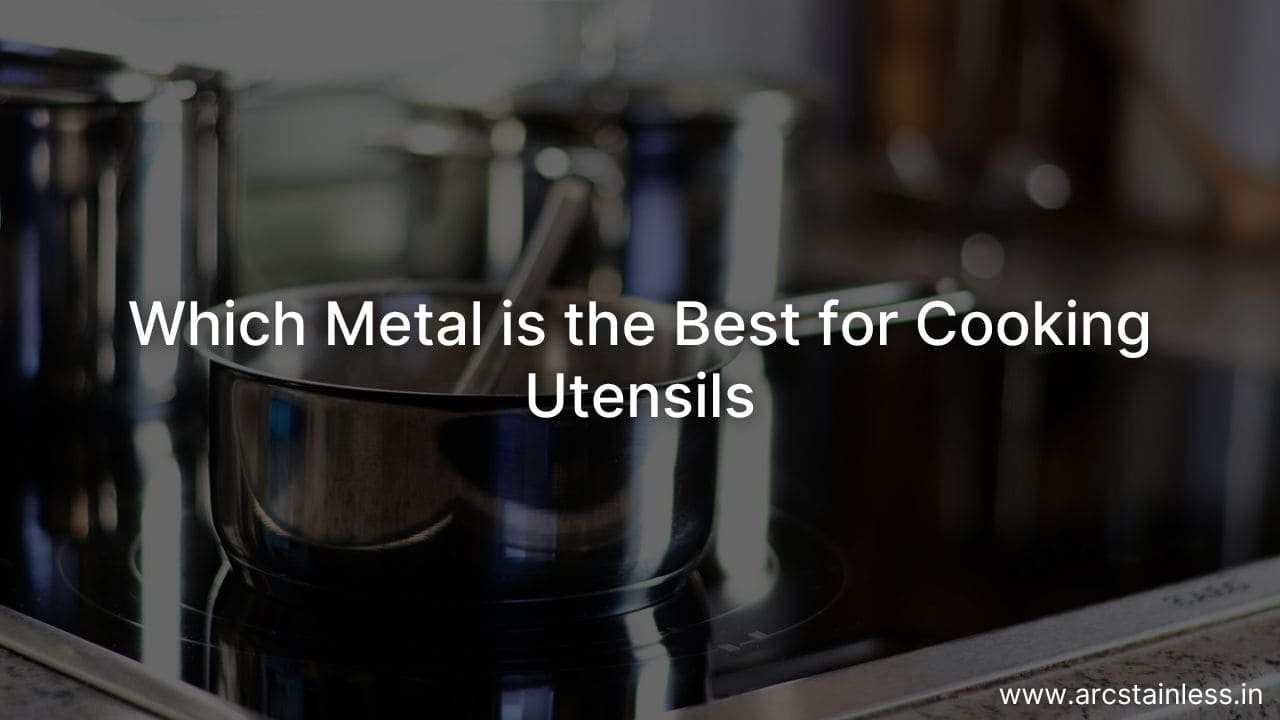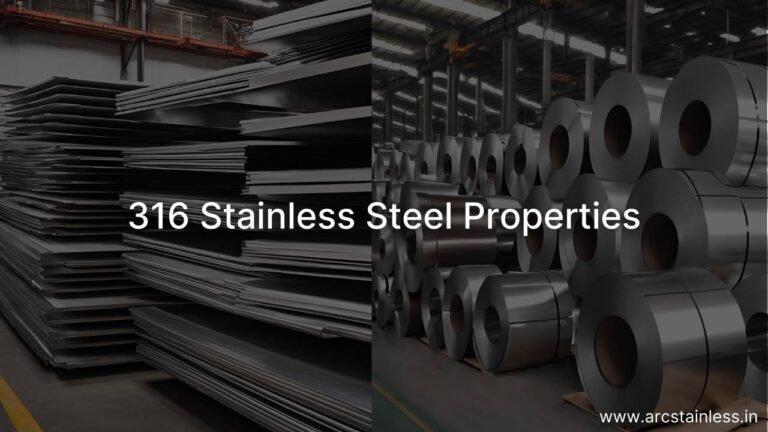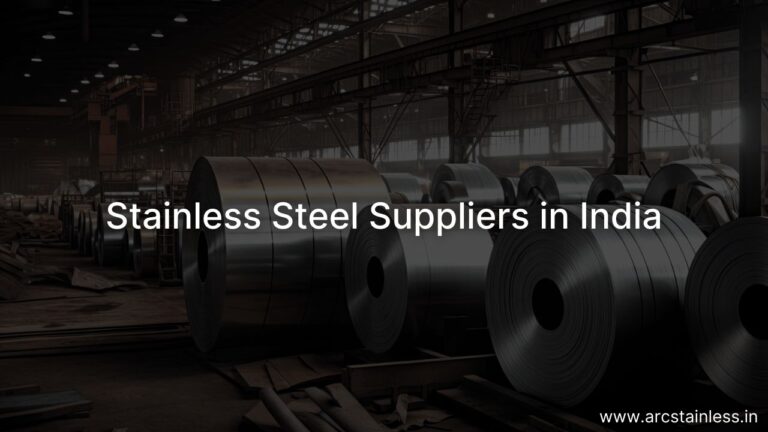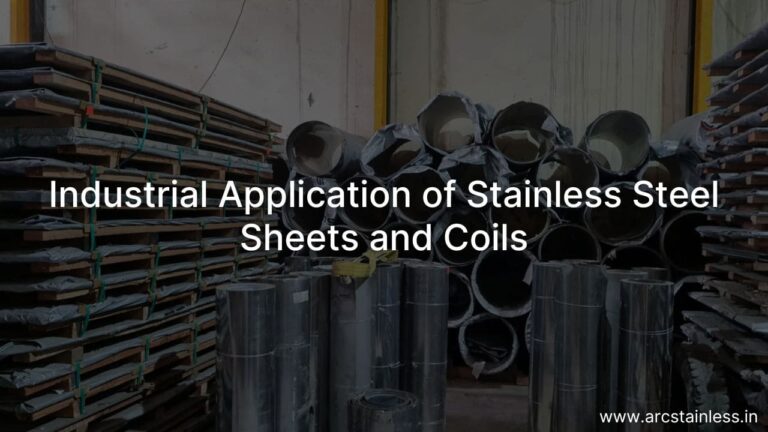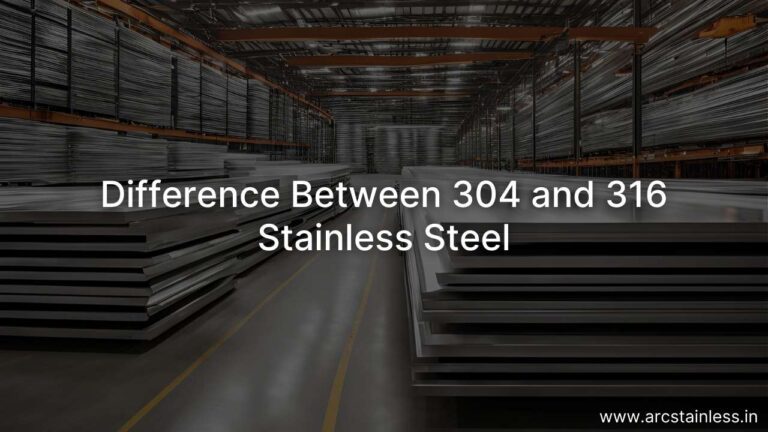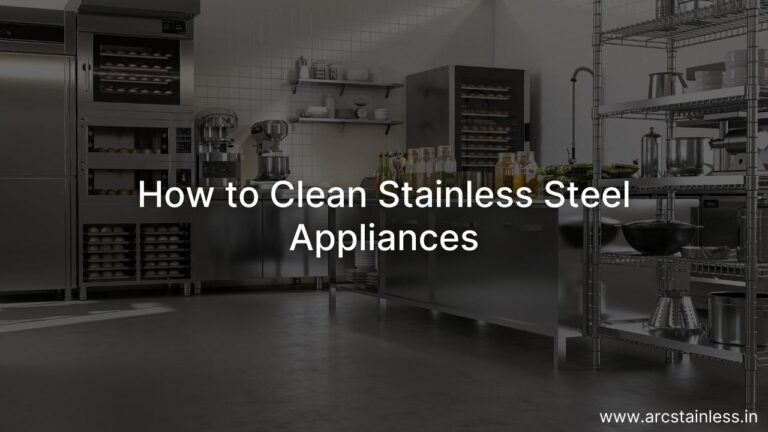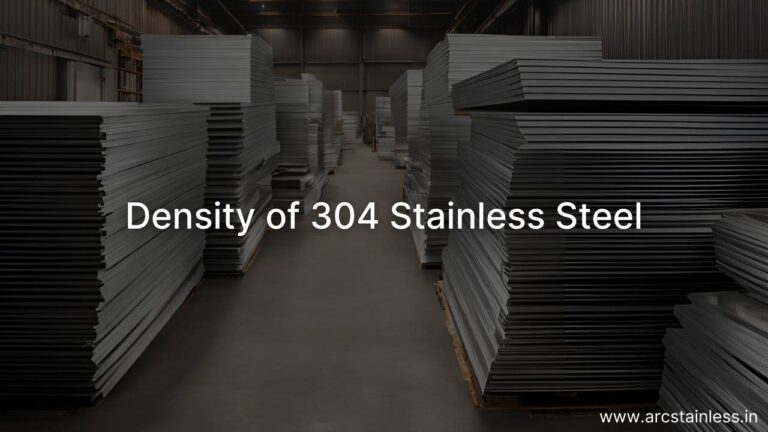Which Metal is the Best for Cooking Utensils
How to Choose the Best Metal for Cooking Utensils?
Choosing the best metal for cooking utensils is an important decision for any home cook or professional chef. After all, the tools you use directly affect the quality of your cooking, the lifespan of your utensils, and even the safety of the meals you prepare. With so many materials available, it can be overwhelming to know which one is right for your needs.
Whether you’re just starting to build your kitchen collection or looking to upgrade your existing utensils, this guide will help you navigate the world of kitchen tools. We’ll dive into the best metals for kitchen utensils, discuss the pros and cons of each, and offer tips on how to care for them to ensure long-lasting performance. Let’s get started on the path to choosing the best metal for your cooking utensils!
Why is Choosing the Right Metal Important?
Before we break down the best cookware materials, let’s take a moment to understand why the metal of your utensils matters. It’s more than just a matter of appearance. The material affects:
- Durability: You want utensils that will last without breaking or warping.
- Heat conductivity: Some metals conduct heat better than others, which can impact your cooking.
- Reactivity: Certain metals can react with acidic foods, altering
- Maintenance: Some materials are easier to care for than others, making cleaning and upkeep a breeze or a hassle.
Choosing the right metal can help you avoid frustration, save money, and ultimately improve your cooking experience. Now, let’s explore the best metals for kitchen utensils and what makes each one unique.
Best Metals for Kitchen Utensils
1. Stainless Steel: The All-Rounder
When you think of cooking utensils, stainless steel is likely the first material that comes to mind. It’s the most common and versatile material used in kitchen tools. Stainless steel is a favorite for its durability, non-reactivity, and resistance to rust.
Pros:
- Highly durable: Stainless steel can withstand years of heavy use without breaking or bending.
- Non-reactive: It doesn’t alter the taste of food, making it safe for all types of cooking, including acidic dishes.
- Low maintenance: Stainless steel is easy to clean and doesn’t require special care. Most utensils are dishwasher-safe.
- Rust-resistant: It won’t corrode when exposed to moisture, making it ideal for kitchen environments.
Cons:
- Prone to scratching: Stainless steel can get scratched easily, especially when used with non-stick cookware.
- Heavy for some users: While not excessively heavy, stainless steel utensils can feel bulky for those who prefer lightweight tools.
2. Cast Iron: The Heat Retainer
Cast iron is another popular choice for kitchen utensils, particularly those used for cooking at high temperatures. Known for its heat retention and even heat distribution, cast iron is perfect for cooking tasks like frying, searing, and slow cooking.
Pros:
- Excellent heat retention: Cast iron holds heat well, ensuring even cooking and excellent searing.
- Durability: When properly maintained, cast iron can last for generations.
- Naturally non-stick: With regular seasoning, cast iron becomes naturally non-stick, making cooking and clean up much easier.
Cons:
- Heavy: Cast iron is notoriously heavy, which may make it difficult for some users to handle.
- Requires maintenance: Cast iron utensils need to be seasoned regularly to maintain their non-stick surface and prevent rust.
- Prone to rust: If not properly seasoned or dried after use, cast iron can rust quickly.
3. Aluminium: The Lightweight Option
If you’re looking for an affordable and lightweight material, aluminium is a great option. Aluminium utensils heat up quickly and are easy to handle, making them ideal for quick cooking tasks.
Pros:
- Lightweight: Aluminium utensils are easy to maneuver, especially for those with smaller hands or anyone who prefers light tools.
- Affordable: Aluminium is typically more cost-effective than other materials, making it a great choice for budget-conscious cooks.
- Good heat conduction: Aluminium heats up quickly and distributes heat evenly, making it perfect for rapid cooking.
Cons:
- Prone to scratching: Aluminium can scratch easily, especially when used with non-stick cookware.
- Less durable: Aluminium utensils can wear out over time and are more likely to bend or break compared to stainless steel or cast iron.
- Reactivity: Without a coating, aluminium can react with acidic foods, potentially altering the taste and color of your meals.
4. Copper: The Precision Cooker
For those who prioritize precision and style, copper is an excellent choice. Copper is an ideal material for cooking utensils that require quick temperature control, such as those used in candy-making or delicate sauce preparation.
Pros:
- Superior heat conduction: Copper reacts quickly to temperature changes, making it ideal for precise cooking tasks.
- Aesthetic appeal: Copper utensils add a stylish touch to any kitchen, with their shiny, polished look.
- Precision cooking: Perfect for recipes that require consistent and accurate heat control.
Cons:
- Expensive: Copper is typically more expensive than other metals.
- Requires maintenance: Copper tarnishes over time and requires regular polishing to maintain its shine.
- Reactivity: Copper can react with acidic foods unless lined with stainless steel, which may affect the taste of your meals.
5. Silicone and Wooden Utensils: The Non-Metal Alternatives
While not technically metals, silicone and wooden utensils are often used in combination with metal tools. These materials are gentle on non-stick cookware and can complement metal utensils in your kitchen.
Pros:
- Non-scratching: Silicone and wood won’t scratch delicate non-stick surfaces.
- Heat-resistant: Silicone can withstand high heat without warping, while wood offers a safe alternative for lower temperatures. Safe for non-stick cookware: Both materials are gentle on non-stick surfaces, ensuring that you don’t damage your cookware.
Cons:
- Less durable: Wooden utensils can wear down over time, and silicone can become brittle.
- Limited heat resistance: Wooden spoons can burn in high heat, while silicone has a lower maximum temperature threshold than metals.
How to Care for Your Cooking Utensils
Caring for your utensils properly will ensure they last longer and perform better. Here are some essential care tips based on the metal of your utensils:
Stainless Steel Care Tips:
- Wash promptly: Clean your utensils soon after use to prevent food from sticking.
- Avoid abrasive cleaners: Use a soft sponge to clean stainless steel to avoid scratching.
- Polish occasionally: Use a stainless steel cleaner to remove stains and restore shine.
Cast Iron Care Tips:
- Clean with a stiff brush: After use, clean your cast iron utensils with a brush and warm water (avoid soap).
- Season regularly: To prevent rust and maintain a non-stick surface, season your cast iron utensils with oil.
- Store in a dry place: Always store cast iron in a dry area to avoid rust.
Aluminium Care Tips:
- Use gentle cleaning methods: Clean with mild soap and avoid steel wool or harsh abrasives that could scratch the surface.
- Dry thoroughly: Aluminium can be prone to oxidation if left wet, so dry your utensils immediately after cleaning.
Copper Care Tips:
- Polish regularly: To maintain its shine, use a copper cleaner or a mixture of lemon juice and salt.
- Avoid acidic foods: Copper can react with acidic ingredients, so make sure to line copper utensils with stainless steel if needed.
Choosing the Best Metal for Kitchen Utensils
Ultimately, choosing the best metal for kitchen utensils depends on your cooking style, the type of meals you prepare, and how much maintenance you’re willing to do. Here’s a quick breakdown to help you decide:
- For versatility and durability: Go with stainless steel.
- For heat retention and slow cooking: Opt for cast iron.
- For lightweight, affordable options: Choose aluminium.
- For precise temperature control: Copper is the way to go.
FAQs
Which metal is best for cooking utensils?
Stainless steel is the best for cooking utensils due to its durability, heat resistance, and non-reactive properties, making it safe and versatile for all types of cooking.
Is stainless steel safe for cooking?
Yes, stainless steel is safe for cooking. It is non-toxic, does not leach harmful chemicals, and is ideal for preparing acidic or alkaline foods without altering their taste.
Can I use aluminium utensils on non-stick cookware?
Avoid aluminium utensils on non-stick cookware to prevent scratches. Use silicone or wooden utensils instead to preserve the non-stick coating and extend the cookware’s lifespan.
Is cast iron better than stainless steel?
Cast iron retains heat better, making it ideal for frying, while stainless steel is non-reactive and easier to maintain. Choose based on your cooking needs and preferences.
How do I care for cast iron utensils?
Season cast iron regularly with oil, clean gently without soap, and dry completely to prevent rust. Proper care ensures longevity and enhances its non-stick properties.
Can copper utensils be used for acidic foods?
Avoid using unlined copper utensils for acidic foods, as copper reacts with acids. Opt for copper utensils lined with stainless steel or tin for safe cooking.
What are the advantages of aluminium utensils?
Aluminium utensils are lightweight, affordable, and excellent heat conductors. Anodized aluminium is durable, non-reactive, and ideal for a variety of cooking tasks.
Do I need to polish my copper utensils?
Yes, polish copper utensils regularly to maintain their shine and prevent tarnishing. Use natural or commercial copper cleaners for effective results.
What are the best non-metal alternatives for cooking utensils?
The best non-metal alternatives are bamboo, silicone, and wooden utensils. They are safe, non-scratch, eco-friendly, and ideal for use on non-stick or delicate cookware.


